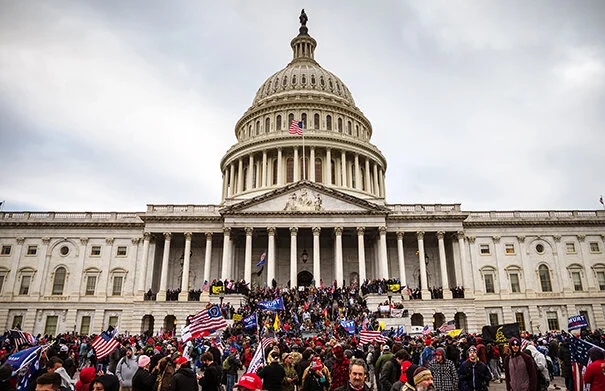China’s influence operations have evolved to employ “information laundering” to shape global narratives. Information laundering—the process of introducing disinformation into the Internet ecosystem and legitimizing it through transitions from fringe sites to public discourse—is the next generation of information operations. While Russia’s 2016 election interference is a well-documented and heavily litigated example of this process, China’s social media forays have been characterized as more overt and less skillful.Their actions have garnered minimal engagements, were easily attributed, and were ultimately blocked as state-sponsored content. However, China’s recent history with influence operations demonstrates a continually evolving tactic and narrative, with information laundering as the most recent and successful approach.
Putin’s Jedi Mind Trick in Ukraine: How Truth Decay Shapes the Operational Environment
Moscow’s falsehoods justifying imperial aggression and war crimes have penetrated cultural and geographic boundaries. It is only a matter of time before other authoritarian powers adopt similar tactics to excuse similar actions. To address this challenge, the United States and its allies should come to view truth decay as a multi-domain mechanism for shaping the operational environment to accommodate military aggression – a non-kinetic means to a kinetic end.
Competing Against Authoritarianism
The global rise of authoritarianism is a pressing strategic problem for the United States and its like-minded allies. Chinese and Russian authoritarianism threaten the liberal order from without. Simultaneously, democratic backsliding in the U.S. and Europe undermines liberalism from within. The nature of these twin aspects of authoritarianism requires a joint response able to support and strengthen the liberal order against disintegration. This response must include a more expansive approach to countering the authoritarian warfare occurring below the traditional threshold of armed conflict.
Misinformation in the Military Community and the Next National Security Strategy
The proliferation of misinformation via social media continues to radicalize, alienate, or isolate American citizens across demographics, including specific targeting of military veterans. Misinformation-fed emotional and psychological effects can drive these individuals toward forming virtual and in-person communities of shared worldviews. The insurrection against the U.S. Congressional certification of the Electoral College results on January 6, 2021 demonstrated the power of misinformation to drive mass violence. Many of the insurrectionists were connected to the U.S. military, including retirees and veterans. The next National Security Strategy writers should attempt to answer: How does the United States counter misinformation within its military community?
Disinformation Disruption and Distance: Public Confidence in the U.S. Military in the COVID-19 Era
Amidst the COVID-19 crisis, trust in institutions and leadership face a unique vulnerability that foreign actors are poised to exploit. This article describes a unique nexus of institutional confidence and societal vulnerability to foreign disinformation, the prevalent tactics used to leverage the American information ecosystem, and ways the U.S. military can better support the society it is charged to defend.
The Damage of Disinformation: A Glaring Omission in the U.S. Global Health Security Strategy
Although it has been over five years since the Ebola crisis devastated West Africa and energized the global community to more effectively prevent, detect, and respond to health threats, the COVID-19 pandemic exposed America’s lack of preparedness for high-consequence disease outbreaks. While America’s Global Health Security Strategy is an important framework to strengthen global health security, as written, the strategy is insufficient.
The Evolution of Disinformation: How Public Opinion Became Proxy
Western governments and corporations will seek ways to counter mounting threats related to disinformation, but they cannot eradicate its existence, nor can they dictate how information is processed by its consumers. The fight against disinformation is a generational struggle that will only be won through education and long-term cultural shifts related to the manner in which populations seek, consume, and validate information.








